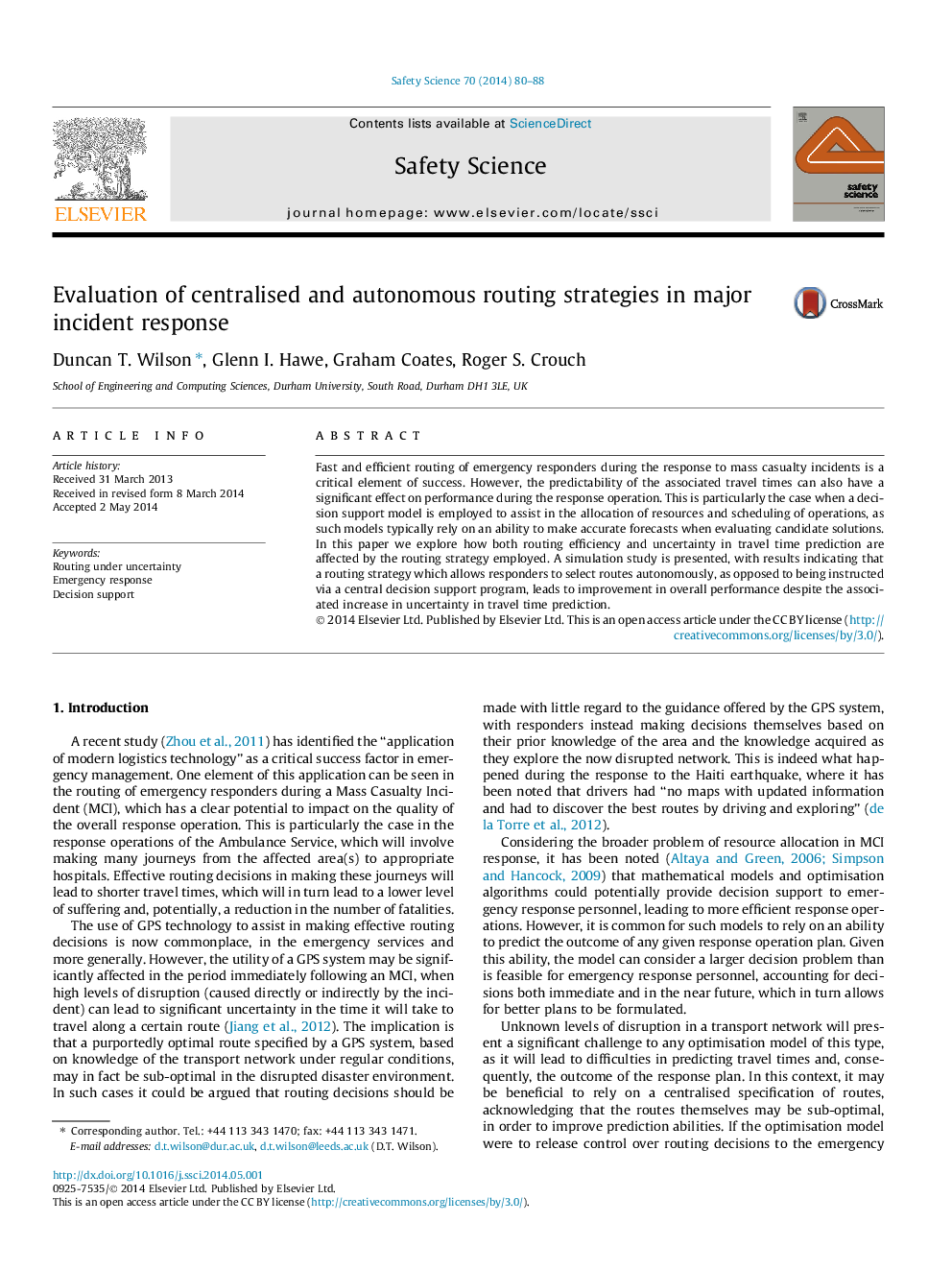| Article ID | Journal | Published Year | Pages | File Type |
|---|---|---|---|---|
| 6976070 | Safety Science | 2014 | 9 Pages |
Abstract
Fast and efficient routing of emergency responders during the response to mass casualty incidents is a critical element of success. However, the predictability of the associated travel times can also have a significant effect on performance during the response operation. This is particularly the case when a decision support model is employed to assist in the allocation of resources and scheduling of operations, as such models typically rely on an ability to make accurate forecasts when evaluating candidate solutions. In this paper we explore how both routing efficiency and uncertainty in travel time prediction are affected by the routing strategy employed. A simulation study is presented, with results indicating that a routing strategy which allows responders to select routes autonomously, as opposed to being instructed via a central decision support program, leads to improvement in overall performance despite the associated increase in uncertainty in travel time prediction.
Keywords
Related Topics
Physical Sciences and Engineering
Chemical Engineering
Chemical Health and Safety
Authors
Duncan T. Wilson, Glenn I. Hawe, Graham Coates, Roger S. Crouch,
